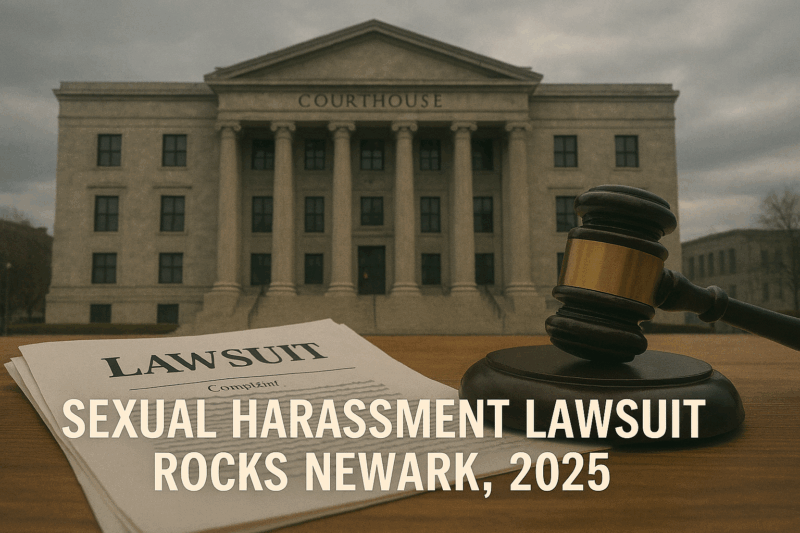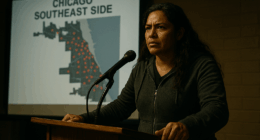A Career Cut Short by Harassment
In the heart of Newark, Laura Ciesla dedicated six years to serving as a police officer, only to face what she describes as relentless sexual harassment and retaliation. On August 29, 2025, Ciesla filed a federal lawsuit against the city, accusing Mayor Ras Baraka and colleagues of creating a hostile work environment that forced her resignation. Her 32-page complaint details a pattern of inappropriate advances, discriminatory practices, and a department that punished her for speaking out, leaving her career and mental health in tatters.
Human Toll of the Alleged Harassment
Laura Ciesla’s ordeal began during her tenure from 2018 to 2024. The lawsuit claims Mayor Baraka sent flirtatious messages via Signal, a platform with strict privacy settings, and made inappropriate requests, including photos of her in the shower and invitations to spas and dinners—advances she consistently rejected. Male colleagues allegedly compounded the harassment with sexually explicit comments and requests for nude photos. The emotional toll escalated when Ciesla, recovering from a mental health crisis, was deemed “unfit for duty” and pressured to resign under duress, losing her livelihood and sense of security.
Facts and Figures
Ciesla’s lawsuit, filed in U.S. District Court on August 29, 2025, cites disability discrimination, due process violations, and a hostile work environment. A pivotal incident occurred in 2023 when Ciesla tested positive for a prescribed painkiller, which she disclosed in advance with doctors’ notes and pharmacy records. Despite compliance, the Newark Police Department stripped her of her service weapon, accused her of falsifying records, and subjected her to disciplinary hearings. The city’s response, led by Corporation Counsel Kenyatta Stewart, denies the allegations, promising a “full-fledged investigation.” Ciesla seeks compensatory and punitive damages for lost wages and emotional distress.
Broader Context: Workplace Culture and Accountability
Ciesla’s case highlights systemic issues within the Newark Police Department, where she reported harassment to a lieutenant, a captain, and the police union president, yet faced retaliation. This lawsuit comes amidst broader scrutiny of Mayor Baraka, who in 2018 proposed strengthening Newark’s sexual harassment policies to protect all residents, not just city employees. The allegations contrast with his public stance, raising questions about accountability in public institutions. Nationally, similar cases, like those in the #MeToo era, underscore the challenges women face in male-dominated fields like law enforcement, where power imbalances often silence victims.
What Lies Ahead: Seeking Justice
Ciesla’s legal battle, led by attorney John C. Luke Jr., hinges on evidence including medical records, Internal Affairs documents, and messages exchanged with city officials. The lawsuit’s outcome could set a precedent for how Newark addresses workplace harassment and disability discrimination. For Ciesla, it’s about reclaiming her dignity after being “treated terribly” for her public service. The city’s investigation, promised by Stewart, will be critical, as will public pressure to reform departmental culture and protect whistleblowers.
Newark’s Response and Investigation
Newark Corporation Counsel Kenyatta Stewart has denied the allegations, noting they were “first notice” for the city. The promised investigation will examine claims against Baraka and other officials, though Captain John J. Chrystal III and the Newark Fraternal Order of Police declined to comment.
Conclusion: A Call for Change in Newark
Laura Ciesla’s lawsuit against Mayor Ras Baraka and the Newark Police Department exposes a troubling narrative of alleged sexual harassment and retaliation. Her courage in speaking out, despite personal and professional costs, demands accountability and reform. As Newark investigates, the case underscores the need for safe workplaces where public servants like Ciesla can thrive without fear. The fight for justice continues, shining a light on the broader struggle to end harassment in public institutions.






